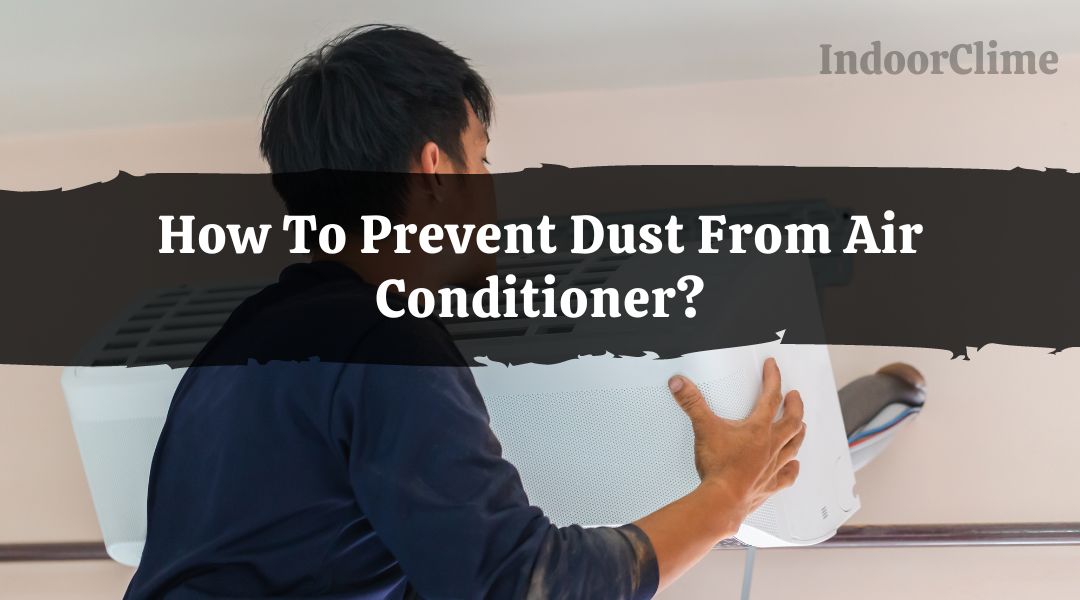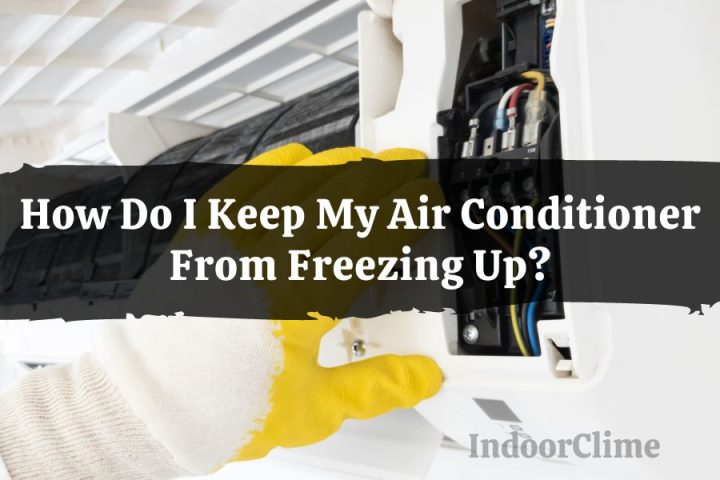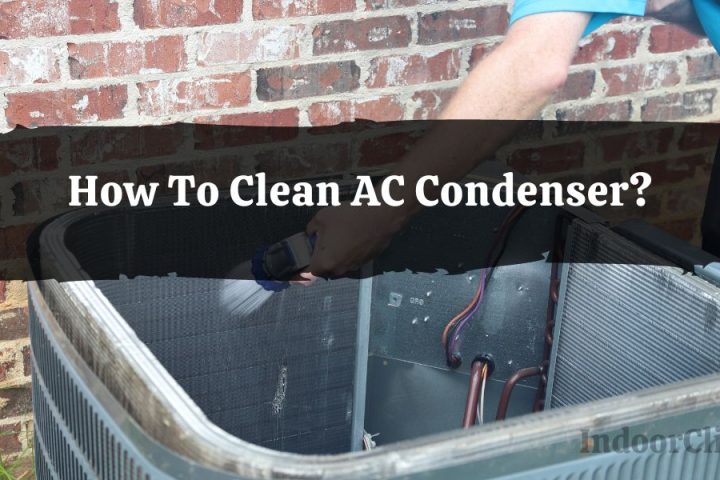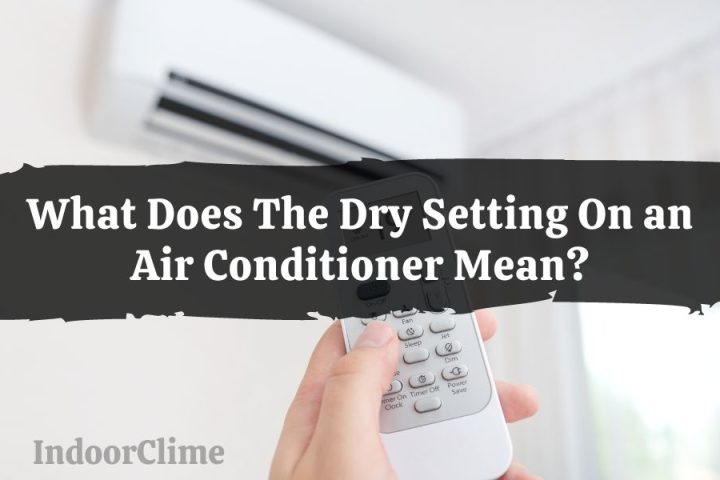The very purpose of air conditioners is to maintain cool air in your home. But the thing is, this quality comes with a very unpleasant side effect – dust circulation.
Dust settling into the fan unit is one of the most common issues in air conditioners. If not dealt with, this problem could be very costly and inconvenient.
Dust is one of the biggest problems for our respiratory system. Many dust sources in the office or home make us suffer from the respiratory system.
This can lead to issues with sneezing and feeling congested at times.
This article will discuss the cause and solutions to preventing dust and dirt from your AC unit.
You can prevent dust from an air conditioner by using an HVAC filter to set a trap for dust, closing and covering the leaks, preventing your home furniture pieces from being dried out and musty, and, most significantly, by adjusting your thermostat to ON settings.
Why Is My Air Conditioner Blowing Dust?
Approximately 60% of dust particles in your home originated outside, making their way through windows, doors, and your feet.
Your HVAC system filters the air that circulates your home. When anything goes wrong, the dust begins to collect and never stops.
Your HVAC Filter Must Be Replaced
Nothing can keep dust and poisons from blowing back into your home when your HVAC filter is clogged.
A fiberglass filter can capture large dust particles, and research suggests that chemicals like PFAS may bond to the glass.
Polyester and pleated air filters, on the other hand, may remove up to 45 percent of pollutants from your house.
Ductwork Leaks

One of the reasons your air conditioner is making your home dusty could be due to leaking ducts. Duct leaks are a significant issue for homes, and they are responsible for most of the dust in your home.
Ducts are permanently installed in attics, basements, and behind walls in any air conditioner installation. These are naturally filthy and dusty environments.
The dust from these regions is sucked into the air ducts by your HVAC system, which is distributed throughout your home.
Ductwork Needs Cleaning
Ductwork becomes dirty even in the cleanest of homes. It’s true. The intake vent draws dusty air into the ductwork and traps it along the edge before reaching the filter. Leaks in the ductwork remove dust into the system, where it collects.
Pet dander, fur, and dust get trapped when the floor vents aren’t functioning. A pet-free home with no one suffering from allergies or asthma should have its ductwork cleaned every three to five years. That is the absolute bare minimum.
The Intake Vents Are Obstructed
The intake vents become filthy. These vents are often more extensive than the rest of your home’s ducts. You may locate them in your living room or main bedroom.
They’re also much dustier than other vents in your house since they pull air into the system rather than push it out.
As a result, pet hair, dander, dust, and grime can collect and clog the intake vent over time. This makes your home unnecessarily dusty, but it also reduces the effectiveness of your HVAC system.
The HVAC System Need An Upgrade
Finally, if your air conditioner spews dusty air, it could mean your complete HVAC system isn’t working correctly.
To help it operate at extensive strength, you can sometimes get away with replacing a few parts of the engine or compressor. Air conditioners, like cars, require tune-ups.
A new HVAC system is worth the investment for healthy air in families with allergies, asthma, pets, or compromised immune systems.
How Dust and Dirt Affect Your Air Conditioner?

As dust and debris accumulate inside your Home Comfort System, they cause the following problems:
Motor Issues
Your AC unit system is made up of both electrical and mechanical components. If dust and debris accumulate in these areas, the motors and the entire system may fail.
This problem is especially prevalent in fan motors, causing bearings to seize and electrical failures to arise.
The efficiency Of Your Home Comfort System Decreases
One of the most severe dust problems is reducing the heat exchange rate. As dirt accumulates on the coils, it forms a barrier between the coil surface and the surrounding air, preventing the coils from collecting or releasing heat.
This may decrease the cool indoor air and force the AC to work even more complicated.
Increases Energy Usage
When essential air conditioner components are dusty, they do not perform as well as they should.
This places undue strain on your AC unit during operation, leading you to use more energy and generate additional wear on your system, reducing its lifespan.
Will Cleaning My HVAC System and Air Ducts Lower My Energy Bills?
When the furnace or air conditioner components become unclean, they can force your HVAC system to strive harder to pump air through your home, consuming more energy and increasing your bills.
Cleaning the coil and other vulnerable areas should help keep the system running smoothly.
Impairs Indoor Air Quality
As your Home Comfort System functions, it moves and transfers dust and dirt particles to other sections of your home, where they are recirculated.
This implies that dust and grime are trapped in your home, and you are inhaling it all in. Poor indoor air quality can be a critical concern if someone in your household suffers from respiratory disorders or allergies.
Coils with a Dust-Coating
The performance of your air conditioner decreases when dust and grime accumulate in the coils. We know that air is cooled by passing it through these cold coils.
However, the dust and dirt stuck in the wet coils form a barrier between the coil’s surface and the air, preventing the air from cooling correctly.
Aside from not attaining sufficient cooling, it also results in energy waste.
How To Prevent Dust From Air Conditioners?
There is a simple and effective remedy for every typical HVAC problem that may contribute to excessive dust.
Make a Dust Trap

When inspecting your HVAC system for hints of the origins of your dusty home, start with the filter.
HVAC filters should be inspected at least once a month and replaced or cleaned when they become unclean.
If you live in a dusty home or shedding dogs, it may be worth replacing the filter more frequently.
When changing your filter, ensure a tight seal around all sides where it fits in the air return. Dust can enter if gaps or your filter is not appropriately sized.
Do air conditioners have a dust filter?
Most air conditioners feature a specific filter that may catch dust and prevent it from spreading throughout your home.
In addition, you can upgrade your AC unit with a modern air cleaning system that will draw out particles such as dust, pet dander, smoke, pollen, and other contaminants from your area, dramatically improving your air quality.
Cover the Leaks
Leaky ductwork is a more complex problem resulting in excessive dust, and it’s reasonably prevalent.
Small holes can form in your ductwork due to age, corrosion, or poor craftsmanship, and they might appear in dusty parts of your attic and basement.
These openings allow dust to enter at a point past your filter, where it then exits through your vents and into your rooms.
Examine a few of your ducts closely. If you notice dust accumulation on the fins or around the vents, your ducting may leak.
Don’t Let It Dry
Dust is not only more prevalent in drier areas, but it is also more prevalent during the dry winter months than during the wetter summer months.
And if your ducts are leaking and bringing in dry, untreated winter air from your attic, you may create an exceptionally dusty atmosphere in your house.
Aside from sealing your ductwork, the best defense against dry air is to utilize a high-quality humidifier in your home.
If you live in a scorching location, a whole-home humidifier may be worth considering, as it can also help keep wooden furniture and trim from becoming brittle.
Turn your Thermostat to ON Setting
Turn your thermostat’s fan to “On.” If your filter is clean, it will capture much of the dust you kick up. Just remember to return it to “Auto” after you’re done.
How Do I Eliminate Dust In My Home?
Although it is nearly difficult to eliminate dust from your home entirely, it is possible to keep it under control.
- Change your bedding frequently
- Keep your home clutter-free
- Clean from the top to the bottom of your house
- Use an air purifier if you have severe allergies
- Twice a week, vacuum your home
- Sweep and mop wood floors regularly
- Using microfiber cloths, dust your home.
- Request that guests take off their shoes at the door
- Maintain your pets’ grooming
- Schedule a regular cleaner
Can the Air Conditioner Spread Dust?
The air in your central air HVAC system is drawn in and passed through an air filter. This captures more significant particulate matter, such as dust particles.
The air is then heated or chilled depending on the season and delivered to your home with as few dust particles as possible.
However, this does not mean that your HVAC system isn’t contributing to the dust in your home.





